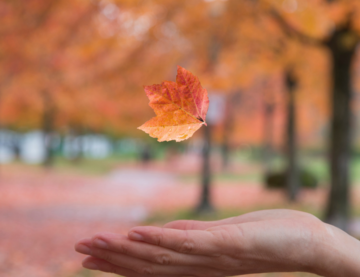Subscribe to our newsletter
Delia Derbyshire inspiring the next generation of electronic music composers #WiSTEMspotlight
As part of Digital Science’s celebrations for Ada Lovelace Day, for the month of October we are running a series of blog posts where inspiring women and men in STEM are sharing their personal stories. Anyone can get involved and we encourage you to read and share your thoughts using the hashtag #WiSTEMspotlight.
Caro C is an electronic music artist, engineer and facilitator in music based in Manchester, UK. She loves to pass on her knowledge and passion for creativity and feels very privileged to have the job of inspiring a new generation of creative musicians. Caro has just released her third album “Everything Gives to Something Else” which uses her voice and piano amidst an emotive electronic soundtrack and quirky found sounds such as a hot pan sizzling under cold water and ice cubes clinking in a glass.
In my guest blog post last year, I shared my path to becoming an electronic music composer and sound engineer and waxed lyrical about inspiring pioneers of electronic music for me like Delia Derbyshire and Daphne Oram.
This time, I’d like to talk about the work I am doing in primary schools in Greater Manchester, UK which seems to be inspiring new generations of electronic music composers – both girls and boys. In partnership with One Education Music, I have designed and delivered an Introduction to Music Technology course for upper Key stage 2, ages 7-11. These five-week courses are aimed as an enjoyable and accessible introduction to the fundamentals of electronic music production, audio engineering, and composition in general. We just use the Garageband app on the iPad (or Garageband on an iMac) as a lot of schools already have this equipment and I feel it acts as a great introduction to music production and recording software.
To assess the impact of my course, I invited a small group of year six girls who had completed it, to talk about their experience and wider issues about opportunities for women working in the electronic music sector. Of course, most pop music that these schoolchildren hear is either electronic or involves electronic elements.
“I loved how they are so hopeful and positive about opportunities for women”
The outcome of the group interview surprised me most pleasantly. I was most impressed that they could discuss the pros and cons of quantisation (to be explained later) after only a five-week course. I loved how they are so hopeful and positive about opportunities for women. They all said they had learned so much and felt confident that they know how to compose their own music independently. I use Delia Derbyshire’s original rendering of the Doctor Who theme which was made in 1963. A composer called Ron Grainer provided Delia with a score for a new sci-fi programme on the BBC and had no idea she would come back with such an iconic and out of this world piece of music with such futuristic sonorities.
During the course, I use Delia Derbyshire’s original rendering of the Doctor Who theme which was made in 1963. A composer called Ron Grainer provided Delia with a score for a new sci-fi programme on the BBC and had no idea she would come back with such an iconic and out of this world piece of music with such futuristic sonorities. The girls debate about whetherDoctor Who and Delia’s theme tune is “boy-ish” and whether you would expect it to be written by a woman. Most of them did not know that the theme was created by a woman and many girls seem quite pleased when they learn this. Some boys are also surprised which is just as important, I think. One girl said that if Delia made the original Doctor Who theme, then maybe she could do it too (make electronic music as a career).
I was also impressed at how they remembered the concept and tool of quantisation (nicely defined by one of the girls as, “it helps make a new part fit with the music”) and they could also anticipate the disadvantages of overusing the tool. How wonderful they not only learned a key concept in electronic music production but could go further to working out the appropriateness of using such a more mechanical approach to making music.
So well done to the pupils I have worked with who have learned a lot in the short five hours (one hour per week for five weeks) that they get to spend with me. They’ve learnt about music production, whilst composing their own music (a theme for an imaginary TV programme). And well done Delia for being such an accessible and engaging inspiration for girls. As one of the interviewees says, in Delia’s time (the 1960’s/70’s) “women were very underestimated” but, “a woman’s role has changed” and now, “these days, it’s more like get out there, do it, don’t keep it to yourself!”



